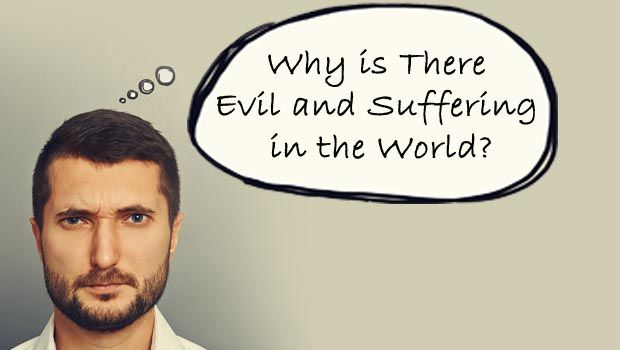This past September 11 marked twenty years since the attack on the World Trade Center in New York City that sent shock waves all over the world. When Muslims were blamed for the bloodiest terror attack on U.S. soil, the public image of Islam in America suffered greatly. South of the U.S. border, however, another 20-year anniversary took place of an event that changed public opinion about Islam in a very different way. On October 1, 2001, a Brazilian telenovela, or soap opera, called O Clone aired for the first time on Rede Globo television. It would later be sold to over 90 countries. Its name, The Clone in English, was translated to El Clon for Spanish-speaking audiences. El Clon was the first tv series that completely revolutionized Latin America’s perception of Muslims, and it would not be the last. Latin America has been called the final frontier when it comes to the spread of Islam. Even though its history is rich with Islamic influence from its indigenous, African, and Andalusian ancestry, the Muslim population in Latin America and the Caribbean is still minimal. However, telenovelas, or novelas, for short, are ensuring everyone and, literally, their mothers, are exposed to Islam. Novelas are as Latino as apple pie or baseball is American. There are jokes and anecdotes about how sacred telenovela hour is for abuelas (grandmas) or mamis (mothers) in every Spanish-speaking household. Changing the channel may earn a person a chancletazo or flying sandal to the body. The biggest producers of Latino telenovelas have been Mexico, Brazil, and Colombia. More recently, Turkish novelas have taken center stage and the Latin American public have embraced them, but it was El Clon that would pave the way for Muslim representation.
Enter El Clon
Solmarie Santiago of the Latin Post ranked El Clon within the top six telenovelas of all time. “El Clon was not only a novela, it was a culture lesson,” she said while highlighting its huge success (https://www.latinpost.com/articles/6284/20140123/latin-post-exclusive-6-telenovelas-cant-forget.htm). Created by Gloria Perez and directed by Jayme Monjardim, El Clon is set in Rio de Janeiro, Brazil and Fez, Morocco. It follows the story of Jade, a Moroccan girl who spends her childhood in Brazil and is forced to return to her native land after her mother’s death. She moves in with Tio Ali, her strict Muslim uncle, and must learn to assimilate into this new Islamic environment. Jade ends up falling in love with a Brazilian named Lucas, who is coincidentally touring Morocco with his family. What ensues is a clash of cultures, ethics, and futuristic science, with a scientist secretly creating a human clone of the protagonist, Lucas. Eventually, as in all telenovelas, love conquers all.
El Clon is most notable for its portrayal of Muslim characters and Islam itself. Rede Globo sought counsel from the World Assembly of Muslim Youth and local imams for its production; nevertheless, it is still not free from the typical stereotypes: Tio or Sidi Ali had three wives and the novela made polygamy seem like a common practice in moderate Morocco; all the Muslim women knew how to belly-dance; and the only hope of happiness for the women was marriage into a rich family. Despite these misrepresentations and cliches, El Clon managed to spark the public’s interest in Islam. Ironically, it was Tio Ali who won the hearts of viewers with his recitation of Qur’an and explanations of the teachings of Prophet Muhammad, peace be upon him.
Within the Latino Muslim community, among converts of ten or more years, it is common to hear stories about how El Clon positively affected their opinion about Islam or changed how, as Muslims, they were perceived by others. Vilma Santos, a Puerto Rican convert to Islam and hostess of Construyendo Puentes de Paz (Building Bridges of Peace) on America’s Islamic Radio, recalls how the character of Tio Ali influenced her understanding of the faith. “Tio Ali was my favorite,” Santos said, “He was very funny, very down-to-earth, but he was the one who spoke about Allah.”
After suffering an accident that left her bedridden for a time, Santos began watching the telenovela with her sister. It would open the doorway to her conversion two years after September 11, 2001. She believes she learned more from the novela than from the Muslims she knew personally. The show “was very impactful because it was the first time the Latino community was introduced to Islam,” Santos explained. She still gets goosebumps from remembering the words of the fictional Tio Ali, who she says spoke beautifully.
Navirita Julia Ovando Moscoso, 39, a communications expert from La Paz, Bolivia, was also influenced by Tio Ali and the women of El Clon. She said, “I became curious about Islam after watching the telenovela and hearing Arabic spoken for the first time.” Moscoso said she was fascinated by the social roles of women within an Islamic environment set against a non-Muslim country. Meeting a Muslim friend in the university helped her learn as she watched the show. She converted to Islam a few years later. Interestingly, although the novela aired long before social media, there are pages dedicated to Tio Ali with inspirational quotes, memes, and photos on Twitter, Instagram, and Facebook (https://www.instagram.com/ensinamentosdotioali/) (https://twitter.com/frasesdoali?lang=en). One example of a Tio Ali quote is, “Allah gives each person the light necessary to distinguish what is right from what is wrong; if you do not know how to distinguish, the fault is only your own.” Pablo Porcel, 52, a computer technician and translator from Córdoba, Argentina, has been translating, subtitling, and publishing foreign series for more than two years. He credits El Clon for Latin America’s growing tolerance of Islam. He said it “was a fundamental piece to show Islam for the first time in Latin America and I think it opened the door to what later the Turkish series has definitely achieved.”
Turkish Telenovelas: The New Ottoman Empire
Turkish dramas have replaced the primetime lineup of novelas all over Latin-America. The exotic stories are cleaner and, with breathtaking scenery of Anatolia and the Mediterranean, have captivated Latino audiences. So much so, that they are embracing some of the language of Islamic origin such as “masha’Allah” and “insha’Allah,” along with Turkish vocabulary. Channels like WAPA Televisión in Puerto Rico and its branches in the U.S. have abandoned Mexican or Colombian telenovelas for more conservative Turkish shows. There is at least one Turkish novela on every mainstream Spanish channel. This is not the first time Turkey has revolutionized Latin American identity. Contemporary migration of Muslims to Latin America at the turn of the 19th century is related to the decline of the Ottoman Empire. An exodus from the Middle East, which especially involved Arabs from areas dominated by the Ottomans, landed Muslims in Latin America, where they established businesses and made permanent homes. Because their passports identified them as Ottoman citizens, they were all classified as Turks. This confusion led to Latin Americans referring to all Muslims, and Christians of Middle Eastern origin, as “los turcos” (the Turks) or “los árabes” (the Arabs). Other waves of Muslim migration to the Caribbean and Latin America have occurred since that time, shaping everything from government and commerce to the entertainment industry.
Porcel is the administrator for the Facebook group, Turkic History and Culture in Series and Movies, with over 200,000 followers, as well as the website, Historia y Cultura Turca, (hyct.com.ar). He has translated more than one hundred 2.5-hour episodes of Turkish novelas, documentaries, and films. Although he has not converted to Islam, himself, he recognizes the value in the representation of Muslims on Latin American TV.
He said, “There is an understanding and knowledge that had been hidden but is now being revealed and radically changing people’s perspective on Muslim history and culture.” The novelas and epic historical Turkish dramas, called dizi in Turkey, feature Muslim families and glimpses into Muslim life centuries ago. Porcel says the shows are doing away with what he describes as “manufactured prejudices and false perceptions of Islam as a violent ideology.” He has observed the change develop over the past five years and knows some viewers who have, as a result, converted to Islam.
Making Strides in Latin America
One Turkish series contributing to this shift is Dirilis: Ertugrul. Translated as Resurrection: Ertugrul, it was released on the channel TRT in Turkey in 2014. Set in 13th century Anatolia, the Resurrection is a fictionalized historical drama centered around the life of Ertugrul Gazi, father of Osman I, the founder of the Ottoman Empire. Like Tio Ali in El Clon, the scholar Ibn al Arabi al Andalusi serves as the spiritual guide for both the main character and the audience. His teachings have literally resurrected the spirit of El Clon for the Latino audience.
“Ibn Arabi has been the person who vindicated Islam,” said Porcel of the sheikh, played by actor, Ozman Sirgood. Ibn Arabi speaks words of wisdom about Islam, Allah, and His prophets, guiding the characters of Dirilis through the worst situations imaginable, including Mongol invasions, betrayals, and Crusaders’ evil plots. The sage guidance of Ibn Arabi profoundly impacted Porcel and other viewers. He also praises other Turkish shows like Uyanis Buyuk Selcuklu, or The Great Seljuks: Guardians of Justice, who he described as “taking the knowledge of Islam to the highest level we have ever known.” Uyanis is a new and ongoing show, released in September 2020, about the Seljuk Empire. There is no doubt, however, that its popularity is due in part to the success of its predecessor, Dirilis: Ertugrul. The Guardian reported in August 2020 that “(Dirilis) is now so popular that it has been dubbed into six languages and broadcast in 72 countries.” And that “on YouTube alone, Ertugrul has surpassed 1.5bn views” (https://www.theguardian.com/tv-and-radio/2020/aug/12/ertugrul-how-an-epic-tv-series-became-the-muslim-game-of-thrones).
“I think there is a before and after that happens after watching Dirilis: Ertugrul,” said Porcel, describing the change of heart Latin Americans have towards Islam. Amazingly, the entertainment industry has achieved more through novelas than the immigrant Muslim population has in Latin America, to educate the public about Islam. It is a reminder of what Prophet Muhammad (s), said, “…Allah will not leave a house or residence but that Allah will cause this religion to enter it, by which the honorable will be honored and the disgraceful will be disgraced…” (Musnad Ahmad). With more shows being released every year and a fully engaged and eager Latin American audience, the influence of Islamic culture is sure to continue to make strides in this part of the world.
Note: Pablo Porcel hopes to continue his work of translating and subtitling this and other Turkish series but is seeking the Muslim community’s support to cover costs associated with maintaining his website and streaming services. He provides his services for free yet lacks the resources to continue this monumental task. Anyone wishing to donate to the cause can visit his website, hyct.com.ar and donate through PayPal.






